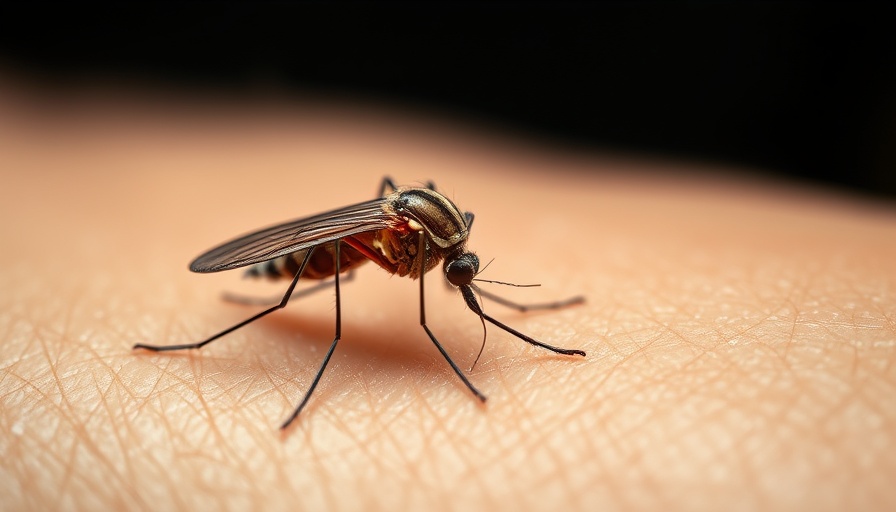
Illinois' First West Nile Virus Case of 2025 Signals Early Mosquito Season
As summer approaches, health officials in Illinois have confirmed the state’s first case of West Nile virus in 2025, a concerning indication that mosquito season is arriving earlier this year. The patient, who resides in southern Illinois, was hospitalized with complications linked to this sometimes severe virus transmitted by Culex mosquitoes.
According to the U.S. Centers for Disease Control and Prevention (CDC), the emergence of this case marks the earliest report of West Nile virus in Illinois since 2016, serving as a stark reminder for residents, particularly seniors and those with weakened immune systems, to safeguard against mosquito bites. Dr. Sameer Vohra of the Illinois Department of Public Health, emphasizes, "These early cases remind us to take the threat of mosquito-borne illnesses seriously."
The Threat of West Nile Virus
The West Nile virus primarily spreads through infected mosquitoes that have bitten birds contaminated with the virus. Most individuals won’t exhibit symptoms, but for some, the illness escalates to severe conditions affecting the brain and spinal cord. More alarmingly, data from 2024 highlighted 69 confirmed human cases of West Nile virus in Illinois, resulting in 13 deaths — the highest since 2018, emphasizing the virus's potential danger.
Statistics reveal that about one in every 150 infected individuals experiences severe neurological symptoms, underscoring the importance of public awareness and precautionary measures. Mosquitoes carrying the virus have been identified in 19 counties this year, including populous areas like Cook and DuPage, highlighting the widespread risk.
Protective Measures Against Mosquito Bites
In light of these recent developments, the Illinois Department of Public Health has laid out effective steps to combat mosquito breeding and reduce exposure to bites. The Three R’s are key components of this strategy:
- Reduce: Eliminate standing water around homes, which is essential for mosquito breeding. Simple actions, like emptying flowerpots or cleaning gutters, can significantly make a difference.
- Repel: Dress in long sleeves and pants, and apply insect repellent containing proven ingredients like DEET or oil of lemon eucalyptus. Always follow application guidelines, especially when using repellent on children.
- Report: Notify local health departments of stagnant water areas that could be breeding grounds for mosquitoes.
Conclusion: Take Action to Protect Your Health
With mosquito season underway, being proactive is vital to prevent the spread of West Nile virus. Residents are encouraged to adhere to public health recommendations. For more details on safeguarding your health, contact us today.
 Add Row
Add Row  Add
Add 




Write A Comment